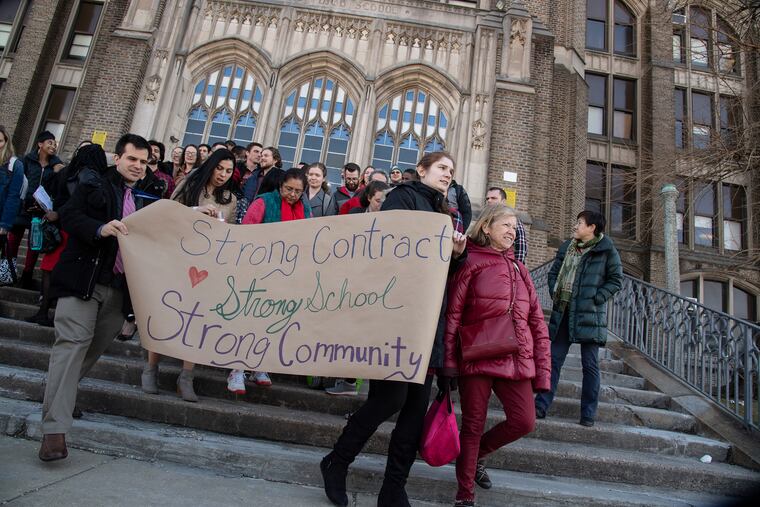How many lawyers does it take to shut down a failing charter school? | Opinion
The state’s charter law, characterized as “the worst in the nation" by Pennsylvania Auditor General Eugene DePasquale, was written to benefit charter operators and investors—and obviously their lawyers.

When the School District of Philadelphia targeted Germantown High School for closure just one year before its 100th anniversary, there was no legal recourse for students or families. No law required the district to conduct an inquiry or call witnesses in order to hear testimony from those fighting to save the school. While the administration of Superintendent William Hite did hold an informal meeting at the school, the community’s pleas fell on deaf ears. Germantown High, along with 23 other neighborhood schools that had served generations of Philadelphians, was closed by vote of the School Reform Commission in a matter of months.
Closing a charter school is a very different story. The Pennsylvania Charter Law mandates a lengthy legal process, beginning with weeks of hearings at the district level. Thousands of pages of documents are entered into evidence. Should the hearing examiner rule in the district’s favor, the charter school can appeal to the state’s Charter Appeal Board in the hope that the six-person board of political appointees, most of whom have ties to the charter sector, will overrule the decision of the local board. Should that fail, the school can appeal to Commonwealth Court.
A recent story by Inquirer reporter Maddie Hanna detailed the costs involved in current efforts to shut down two city charters.
The district handed over management of Olney High and Stetson Middle to Aspira, Inc., in 2010 and 2011 respectively, as part of its “Renaissance” program, with the expectation that Aspira would effect “dramatic” change at both schools. Not only did Aspira, which operates three other charter schools in the city, fail to turn around either school, test scores actually went into a steady decline every year. But it was Aspira’s questionable financial practices and overall mismanagement that led to the district’s 2016 recommendation that the SRC vote not to renew both charters.
Several Daily News stories reported that Aspira had filed phony receipts for contractors and diverted funds from the Renaissance schools to its other charters, a clear misuse of taxpayer funds.
Two years later, the SRC voted for nonrenewal in December 2017. The new board did not schedule revocation hearings until almost 18 months later. If Aspira wanted to improve itself academically and financially, its de facto extension gave the company plenty of time to do so, but recent evaluations show continued decline.
So how many lawyers does it take to shut down a failing charter school?
The Inquirer story explains that “because charter schools are funded largely by school districts, taxpayers are paying not just for the district to make its case but for the charter to defend itself.”
The district also pays for the hearing examiner, the stenographer, and for the assembling and copying of thousands of documents. Aspira Olney’s lawyers are making between $180 and $300 an hour, but lawyers for Aspira Inc. wouldn’t disclose their hourly fees — and they are under no obligation to, even though they are paid, indirectly, with taxpayer funds. The district could be shelling out $10,000 a day in legal and administrative fees. That doesn’t include billing for preparation and other costs. That’s $140,000 for the already scheduled 14 days; total cost will easily exceed $200,000. How many teachers or librarians could that buy? How many toxic buildings could be made safe?
The hearings are moving at a glacial pace, with the charter’s lawyers asking the same questions to a long list of witnesses. One line of questioning around the district’s rating system seems to imply that the evaluations for both schools were biased, even though data from state standardized tests show Olney High rated zeroes in achievement for the past three years.
The state’s charter law, characterized as “the worst in the nation" by Pennsylvania Auditor General Eugene DePasquale, was written to benefit charter operators and investors — and obviously their lawyers.
Charters have sold themselves as a better alternative to public schools. When they fail to meet standards in all major categories, as Aspira has, they should spare the taxpayers the expense of a costly and unnecessary legal fight and voluntarily surrender their charter, for the sake of their students and the entire community.
Lisa Haver is a retired Philadelphia teacher and cofounder of the Alliance for Philadelphia Public Schools (APPS).